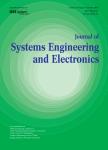Adaptive digital self-interference cancellation based on fractional order LMS in LFMCW radar
适应数字自我干扰取消基于在 LFMCW 的部分顺序 LMS 雷达作者机构:School of Electronic EngineeringXidian UniversityXi’an 710071China
出 版 物:《Journal of Systems Engineering and Electronics》 (系统工程与电子技术(英文版))
年 卷 期:2021年第32卷第3期
页 面:573-583页
核心收录:
学科分类:080904[工学-电磁场与微波技术] 0810[工学-信息与通信工程] 0809[工学-电子科学与技术(可授工学、理学学位)] 08[工学] 081105[工学-导航、制导与控制] 081001[工学-通信与信息系统] 081002[工学-信号与信息处理] 0825[工学-航空宇航科学与技术] 0811[工学-控制科学与工程]
主 题:adaptive digital self-interference cancellation(ADSIC) linear frequency modulated continuous wave(LFMCW)radar fractional order least mean square(LMS)
摘 要:Adaptive digital self-interference cancellation(ADSIC)is a significant method to suppress self-interference and improve the performance of the linear frequency modulated continuous wave(LFMCW)*** to efficient implementation structure,the conventional method based on least mean square(LMS)is widely used,but its performance is not sufficient for LFMCW *** achieve a better self-interference cancellation(SIC)result and more optimal radar performance,we present an ADSIC method based on fractional order LMS(FOLMS),which utilizes the multi-path cancellation structure and adaptively updates the weight coefficients of the cancellation ***,we derive the iterative expression of the weight coefficients by using the fractional order derivative and short-term memory ***,to solve the problem that it is difficult to select the parameters of the proposed method due to the non-stationary characteristics of radar transmitted signals,we construct the performance evaluation model of LFMCW radar,and analyze the relationship between the mean square deviation and the parameters of ***,the theoretical analysis and simulation results show that the proposed method has a better SIC performance than the conventional methods.



